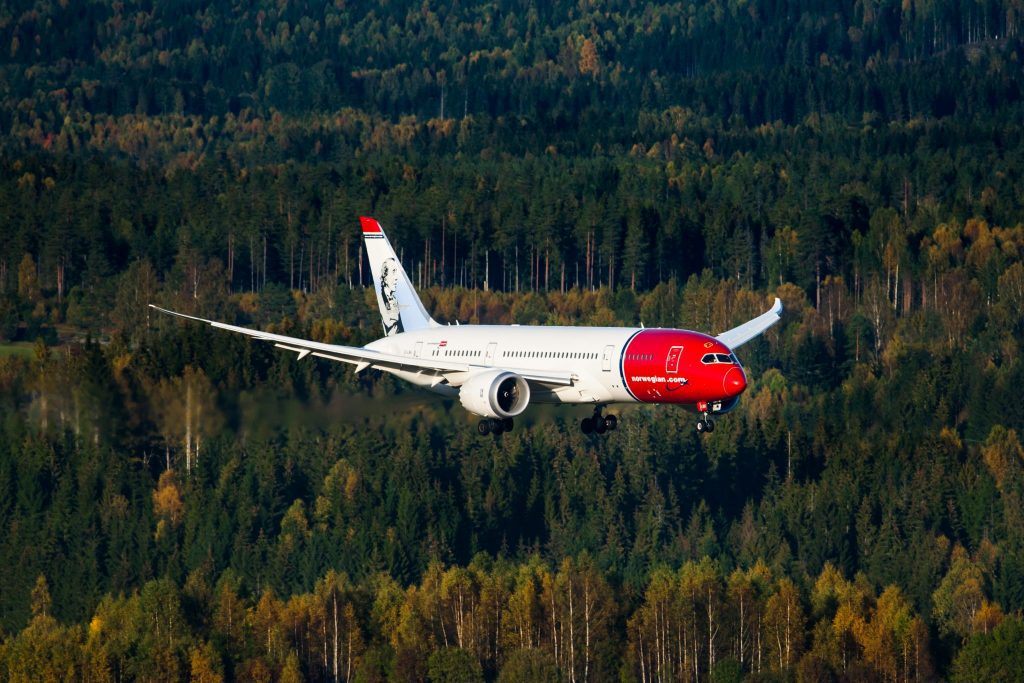Skift Take
Well, well, well, who was expecting that? Not only did Norwegian beat stock market expectations on profitability, it announced details for its long-awaited joint venture and teased plans about a bold new direction.
Over the last year or so, Norwegian Air looked like it would follow carriers such as Air Berlin and Monarch into the aviation graveyard. Under a new leadership team, however, the company could be paving a path out of its financial mess.
On the back of a surprisingly good set of third-quarter results, the airline unveiled an ambitious turnaround plan for the next few years, which could see it radically reshape where it flies.
“We are committed to [making] the necessary changes. And it will be a tough road for us, and it will be a different Norwegian coming out of this, but it will be a stronger Norwegian at the end of the day,” Chairman Niels Smedegaard told analysts on Thursday.
He added: “We will have to fundamentally change how we work together and how we run and operate Norwegian.”
This has meant the end to the huge growth rates that characterized the earlier part of the decade and a focus on profitability. One of the casualties of this change was founder, shareholder, and CEO Bjørn Kjos, who stepped down in July.
It seems fair to say that acting CEO Geir Karlsen, backed by Smedegaard, wants to go in a different direction.
In a presentation to analysts on Thursday, the company hinted that it would be making major changes to its route network as well as looking at other cost savings and profit opportunities across the whole business.
The airline is planning to cut its total number of available seat kilometers — a key airline passenger metric — by 10 percent in 2020. There will also be a review of Norwegian’s current airline subsidiaries across the world.
“The change at the top seems to have brought about a change in direction, and we welcome it. Changing the network strategy is overdue, and while details will be revealed in February we can — for the first time — see a path to a credible strategy,” said Bernstein analyst Daniel Roeska in a note to investors.
Financial Headroom
Norwegian’s ability to reconfigure its business comes after it concluded a number of deals over the past few months to give itself greater financial flexibility.
On the same day as its third-quarter results, it unveiled details of its new aircraft joint venture with China Construction Bank Leasing Corporation.
Initially, Norwegian will place 27 Airbus A320 Neo aircraft into the entity between 2020 and 2023, helping reduce committed capital expenditure by around $1.5 billion as well as giving it a nice equity bump.
.
The new joint venture followed the agreed sale in August of its remaining 17.5 percent shareholding in Norwegian Finans Holding, owner of Bank Norwegian, for $245 million.
These moves will help the airline get through the quieter European winter months when fewer people are traveling.
“All this is a part of giving us a financial headroom for the next 12 to 24 months in order for us to focus on what is the absolutely most important [thing] in this company, and that is to turn around the underlying business and the route network — and to make sure that Norwegian on a 12-month rolling basis will be profitable,” said Karlsen.
The airline also recently announced plans for an interline agreement with JetBlue, giving customers access to connecting flights between Europe and the Americas in a single booking.
Third-Quarter Earnings
Norwegian reported a 7.6 percent rise in revenue to $1.3 billion with pre-tax profit up 37.6 percent to $242.3 million, giving it a margin of 15.3 percent.
The profitability figures were higher than most analysts had predicted, and the share price rose considerably after the release of the results.
UPDATED: Added guidance for
The Daily Newsletter
Our daily coverage of the global travel industry. Written by editors and analysts from across Skift’s brands.
Have a confidential tip for Skift? Get in touch
Tags: earnings, europe, low-cost carriers, low-cost long-haul, norwegian, norwegian air
Photo credit: A Norwegian Boeing 787. The airline has launched a new transformation plan. Jorgen Syversen / Norwegian
